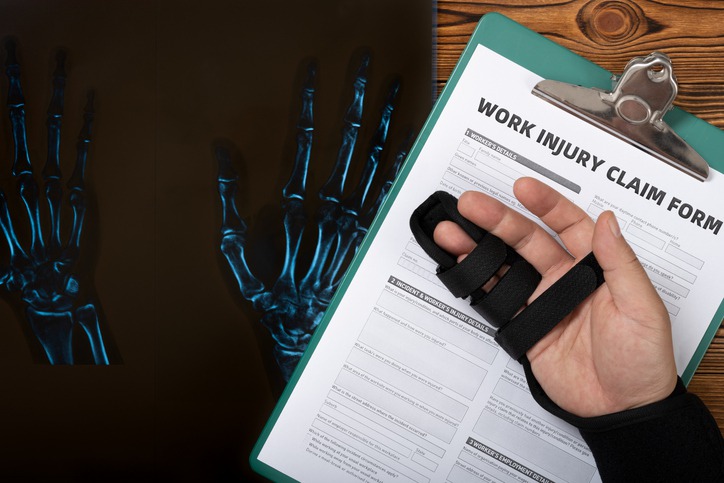
How Long Will a Personal Injury Claim Take?
Many people wonder about the period required to settle a personal injury claim after an accident. Each situation varies because different factors come into play, making each claim unique in its circumstances. Still, it’s helpful to be aware of the general expectations related to the timeframes involved in resolving these issues.
What Factors Influence the Duration of a Personal Injury Lawsuit?
Severity and Nature of Injuries
The severity of your injuries significantly impacts the time needed to resolve your claim. When injuries are minor, such as simple bruises or small sprains, settlement mostly occurs swiftly. However, severe injuries like serious fractures or long-term disabilities might extend the period spent on medical treatments and negotiations. Extensive treatment and rehabilitation might be necessary, requiring extra attention before accurately estimating total costs.
For complex cases, especially those resulting from aviation incidents, consulting with Louisiana aviation accident lawyers can be essential. Their expertise helps ensure all aspects of your injury and the associated costs are thoroughly assessed, facilitating a more comprehensive claim process.
Clarity of Liability
Another vital factor is determining fault in the incident. If liability is clear and all involved parties agree on responsibility, settlement proceedings occur quickly without significant disputes. Conversely, situations involving disputes or uncertainties about responsibility may require investigations and legal debates resulting in a longer process.
Insurance companies may resist providing compensation if there are arguments about liability. Therefore, collecting sufficient evidence early helps in clarifying responsibility clearly and smoothly expediting the claim.
Insurance Company’s Responsiveness
The insurance company’s attitude towards your claim significantly affects its duration. If insurance representatives respond quickly and cooperate, this helps move claims forward rapidly. Conversely, companies trying to reduce or deny your claim often delay resolution through continued questioning or additional paperwork.
Having legal representation may help in dealing effectively with these techniques insurers use to prolong handling time or compensation offers. This often leads to quicker claim resolutions due to more organized and professional interactions.
Existence of Solid Evidence
The presence of comprehensive documentation and supporting evidence helps shorten the timeframe needed to settle your lawsuit. Documents such as clear medical records, detailed accident scene reports, precise witness testimonies, and photographic evidence help prove your claim effectively, speeding up resolution.
Without robust supporting evidence, claims might face additional challenges and delays. Compiling compelling evidence right from the complainant stage helps in easing the claim resolution process.
Whether You Settle or Go to Trial
Your decision to settle or proceed to a courtroom trial notably affects your claim timeline. Settlement negotiations involve discussions leading towards mutual agreements typically taking less time than lengthy courtroom trials. Court trials involve schedules, witnesses, hearings, and preparations that consume more time.
If negotiating is unsuccessful and a lawsuit becomes mandatory, expect considerable extensions to claim duration. Timely counsel from personal injury attorneys can significantly impact the decision-making process favorably.
Steps Usually Involved in Personal Injury Claims
Initial Consultation and Filing
Initially, you’ll seek legal advice during a consultation, after which your attorney will gather essential data regarding the event. An attorney compiles medical reports, expenses incurred, photographs, and formal documents required for your case. During this stage, the official claim officially gets filed against the responsible party.
Proper preparation facilitates a smooth initiation of your legal procedures leading efficiently through subsequent steps. Nonetheless, the precision at this stage sets the overall momentum for an effective claim conclusion.
Investigation and Evidence Collection
This phase involves collecting and examining relevant pieces of evidence for strengthening your case in terms of liability and compensation valuation. Your attorney might engage accident reconstruction professionals or medical experts to analyze circumstances or determine injury impacts. Recorded witness testimonies can further support evidence previously obtained.
The thoroughness and speed at this phase significantly influence overall timelines toward reaching a settlement or litigation resolution. When navigating complex maritime laws, the precise and logical assessment by experienced Louisiana Jones Act lawyers enhances your claim’s success potential while distinctly benefiting timeline efficiency.
Negotiations with the Insurance Company
Your attorney and the responsible party’s insurance representatives will initiate communication to negotiate suitable compensation. Daily conversations and documentation exchanges can occur as both parties seek fair agreements that cover medical treatments, income loss, and general damages incurred. Negotiations may encounter delays due to differing assessments from both sides.
Having professional representatives supporting your stance eases communication flow with insurers effectively. Informative and well-executed negotiations typically minimize unwanted delays and move claims rapidly toward closure.
Filing a Lawsuit and Possible Trial
If negotiation lacks suitable resolutions, your attorney will officially file a personal injury lawsuit in court. During lawsuits, attorneys handle additional paperwork and preparations alongside pre-trial discovery procedures involving more intensive investigative steps. Court calendars, procedural rules, and legal scheduling constraints may extend your timeline considerably.
Navigating this complex process requires expertise and dedication. This is why having the best Louisiana personal injury attorneys can make a significant difference, as they ensure continued judicial communication and adherence to timelines. Many people prefer resolving matters outside rather than seeking jury trials because of these complexities.
Common Types of Personal Injury Claims and Impact on Timelines
-
Motor Vehicle Accidents – Usually, these cases involve clear liability with quick settlements; however, serious cases may differ greatly in duration.
-
Slip and Fall Accidents – Quick solutions occur if a property’s responsibility includes clear evidence depicted; unclear responsibility results in longer durations.
-
Workplace Injuries – Several aspects of employer responsibility toward safety regulations can carry additional investigation challenges affecting timeframes.
-
Medical Malpractice – Complex evidence recovery and health expert involvement generally make resolution considerably longer than other claims.
Final Thoughts
The timeline of your personal injury claim depends on diverse elements like injury severity, evidence clarity, legal complexity, insurance responsiveness, and your decision regarding settlement or trial. Engaging professional lawyers enhances swift, fair solutions. Being informed about such considerations assists you greatly in managing expectations for a smoother overall legal experience.



